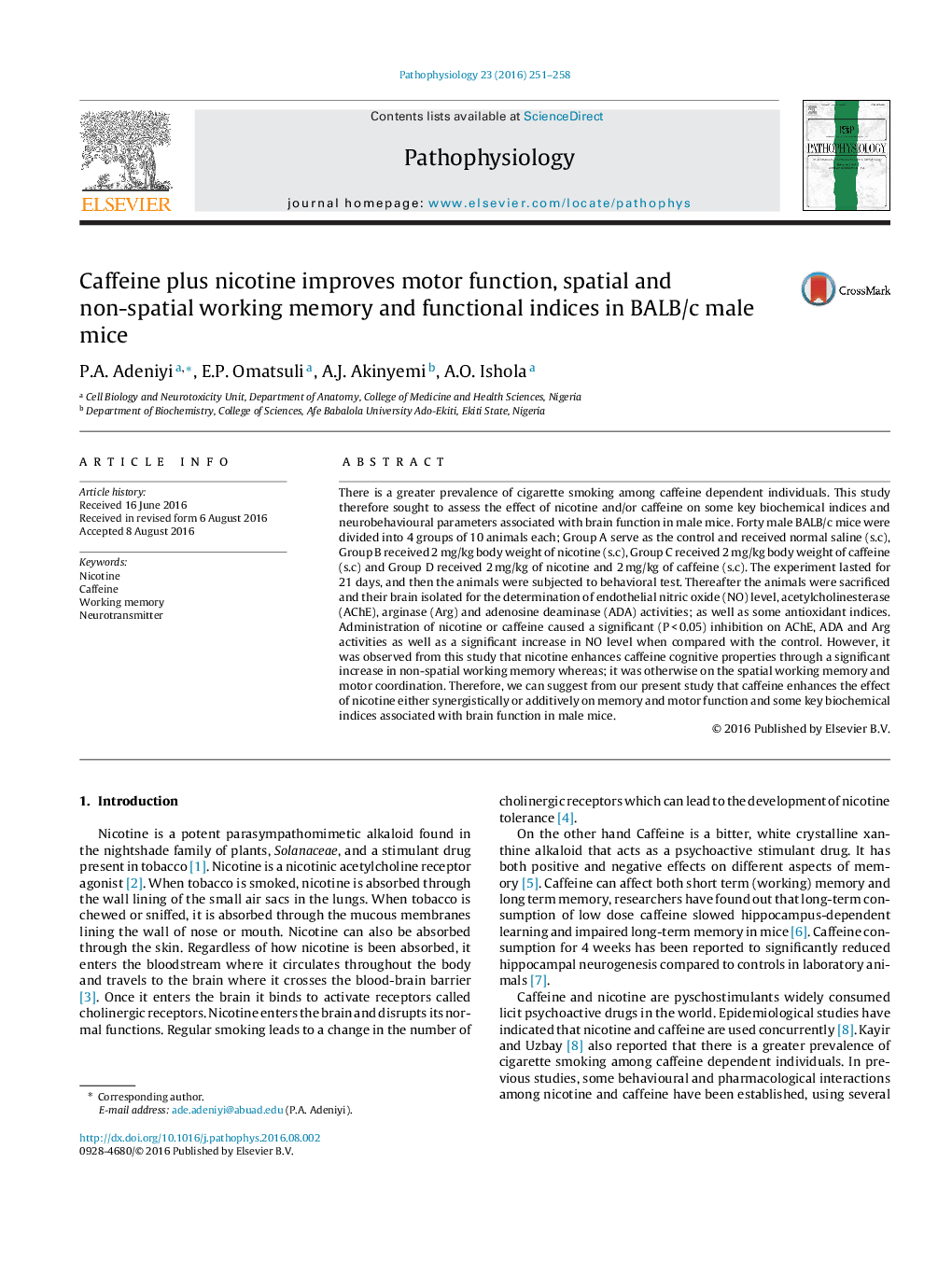| Article ID | Journal | Published Year | Pages | File Type |
|---|---|---|---|---|
| 5716566 | Pathophysiology | 2016 | 8 Pages |
There is a greater prevalence of cigarette smoking among caffeine dependent individuals. This study therefore sought to assess the effect of nicotine and/or caffeine on some key biochemical indices and neurobehavioural parameters associated with brain function in male mice. Forty male BALB/c mice were divided into 4 groups of 10 animals each; Group A serve as the control and received normal saline (s.c), Group B received 2Â mg/kg body weight of nicotine (s.c), Group C received 2Â mg/kg body weight of caffeine (s.c) and Group D received 2Â mg/kg of nicotine and 2Â mg/kg of caffeine (s.c). The experiment lasted for 21 days, and then the animals were subjected to behavioral test. Thereafter the animals were sacrificed and their brain isolated for the determination of endothelial nitric oxide (NO) level, acetylcholinesterase (AChE), arginase (Arg) and adenosine deaminase (ADA) activities; as well as some antioxidant indices. Administration of nicotine or caffeine caused a significant (PÂ <Â 0.05) inhibition on AChE, ADA and Arg activities as well as a significant increase in NO level when compared with the control. However, it was observed from this study that nicotine enhances caffeine cognitive properties through a significant increase in non-spatial working memory whereas; it was otherwise on the spatial working memory and motor coordination. Therefore, we can suggest from our present study that caffeine enhances the effect of nicotine either synergistically or additively on memory and motor function and some key biochemical indices associated with brain function in male mice.
